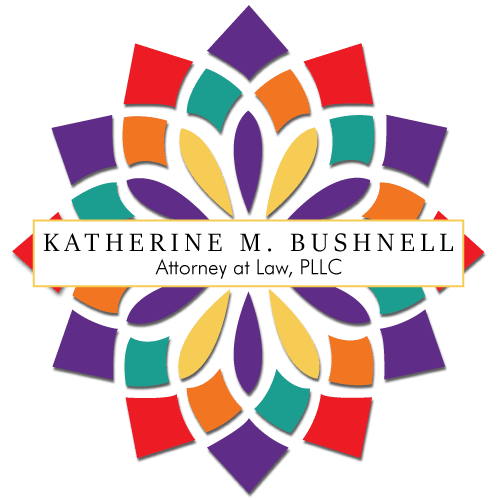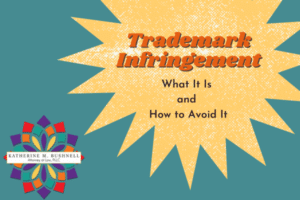Corporate Transparency Act: What is it?
The Corporate Transparency Act (CTA) became effective January 1, 2024. The CTA is the government’s attempt to crack down on illegal financial activities. Congress enacted the CTA as part of the Anti-Money Laundering Act of 2020. The CTA requires most businesses to identify the beneficial owners of the business, and to file a beneficial ownership information (BOI) report.
Under the CTA, the US Treasury’s Financial Crimes Enforcement Network (FinCEN) will maintain a database about ownership of most US companies. Information in the database will come from the Beneficial Owner Information (BOI) reports filed by reporting companies as described further below. The database will be stored on a system called the Beneficial Ownership Secure System (BOSS).
The information will NOT be available to the public. However, information will be shared with national security and intelligence entities, law enforcement agencies, and (in some circumstances) financial institutions.
The purposes of the CTA include:
- Increasing transparency
- Combatting the use of shell companies to shelter illegal money
- Curb terrorism financing
- Reduce corruption
- Decrease tax fraud
Who must file a BOI report?
Domestic and foreign reporting companies are required to file BOI reports.
Domestic reporting companies are business entities, such as LLCs, Corporations, etc, that are created by filing a document with the Secretary of State or any other similar office under the laws of a state or Indian tribe.
Foreign reporting companies are businesses that are formed under the laws of a foreign country and registered to do business in the US by filing a document with the Secretary of State or other similar office under the laws of a state or Indian Tribe.
Sole proprietorships, general partnerships, unincorporated associations, common law trusts are NOT reporting companies.
There are also a number of exemptions to the registration requirement. However, the exemptions are primarily for businesses in industries that are already heavily regulated, like banks and insurance companies. Check here to see if your business qualifies for an exemption.
Consequences of NOT Filing a BOI Report
While there is no fee to file the beneficial owner report, there is a substantial cost to NOT filing.
According to FinCEN, willful failure to report complete or updated information, or willfully providing false or fraudulent information, may result in:
- Civil penalties
- $500 per day that the violation continues
- Criminal penalties
- Imprisonment for up to 2 years and/or
- A fine up to $10,000
Senior officers may be held accountable when a business fails to file its BOI report. Additionally, people who willfully interfere with the company’s attempt to complete the report (such as refusing to provide info needed to file the report) may also be subject to civil and/or criminal penalties.
Identifying Beneficial Owners
A beneficial owner is someone who either directly or indirectly (1) has substantial control over the reporting company or (2) owns or controls at least 25% of the company’s ownership interests.
An individual has substantial control over a reporting company if they:
- Are a senior officer (even without an ownership interest),
- Hold appointment or removal authority,
- Are an important decision-maker,
- Exercise any other form of substantial control over the company. (See the Small Entity Compliance Guide for more information.)
Reporting Company Applicants
If your business entity was created on or after January 1, 2024, you must include the company applicant(s) on your BOI report.
A company applicant is an individual who is involved in the creation of the legal business entity. Company applicants include:
- For a domestic reporting company, the person who files the document that creates the business entity with the Secretary of State (or other government entity).
- For a foreign reporting company, the person who files the document that registers the business entity to do business in the US.
- The person responsible for directing or controlling the filing of documents with the Secretary of State.
So if your business entity formation documents were filed by an attorney or a registered agent company, you must report that person(s) as a company applicant when you file your BOI report.
If your business was created or registered before January 1, 2024, you do not have to report company applicants.
Information Collection
The information you’re required to report for each beneficial owner includes:
- Full legal name
- Date of birth
- Current address
- Unique identification number, such as Social Security Number, passport number, or driver’s license number (including a photo of the document)
Initial BOI Report Requirement
You can easily file your report online. Filing the report takes approximately 5-10 minutes if you have all your information gathered before you start. There is no fee for filing the report.
Deadline for the Initial Report
The deadline for filing your initial report depends on when you recreated or registered your business.
For businesses created or registered prior to January 1, 2024, the deadline to file your initial report is January 1, 2025.
If your business was created or registered in 2024, the deadline to file your initial report is within 90 calendar days of the effective date of your company’s registration or effective date.
If your business is created or registered on or after January 1, 2025, then your initial report must be filed within 30 calendar days of the effective date of your company’s registration or effective date
Ongoing BOI Report Requirement
At the time of this writing (March 2024), there is no annual reporting requirement.
However, you are required to file updates or corrections within 30 calendar days of the change if any of the information you reported to FinCEN in your initial report changes.
Support
Stay up-to-date
Update: On March 1, 2024, a federal court in Alabama ruled the CTA unconstitutional. The decision applies only to the parties in that particular case, and an appeal is expected. See National Small Bus. United v. Yellen, No. 5:22-cv-1448-LCB (N.D. Ala. Mar. 1, 2024). Read FinCEN’s response here. If you have questions about whether your company is required to file a BOI report, and your business is in Oklahoma, schedule a meeting with us to talk about it.
Resources
Beneficial Ownership Information Homepage




